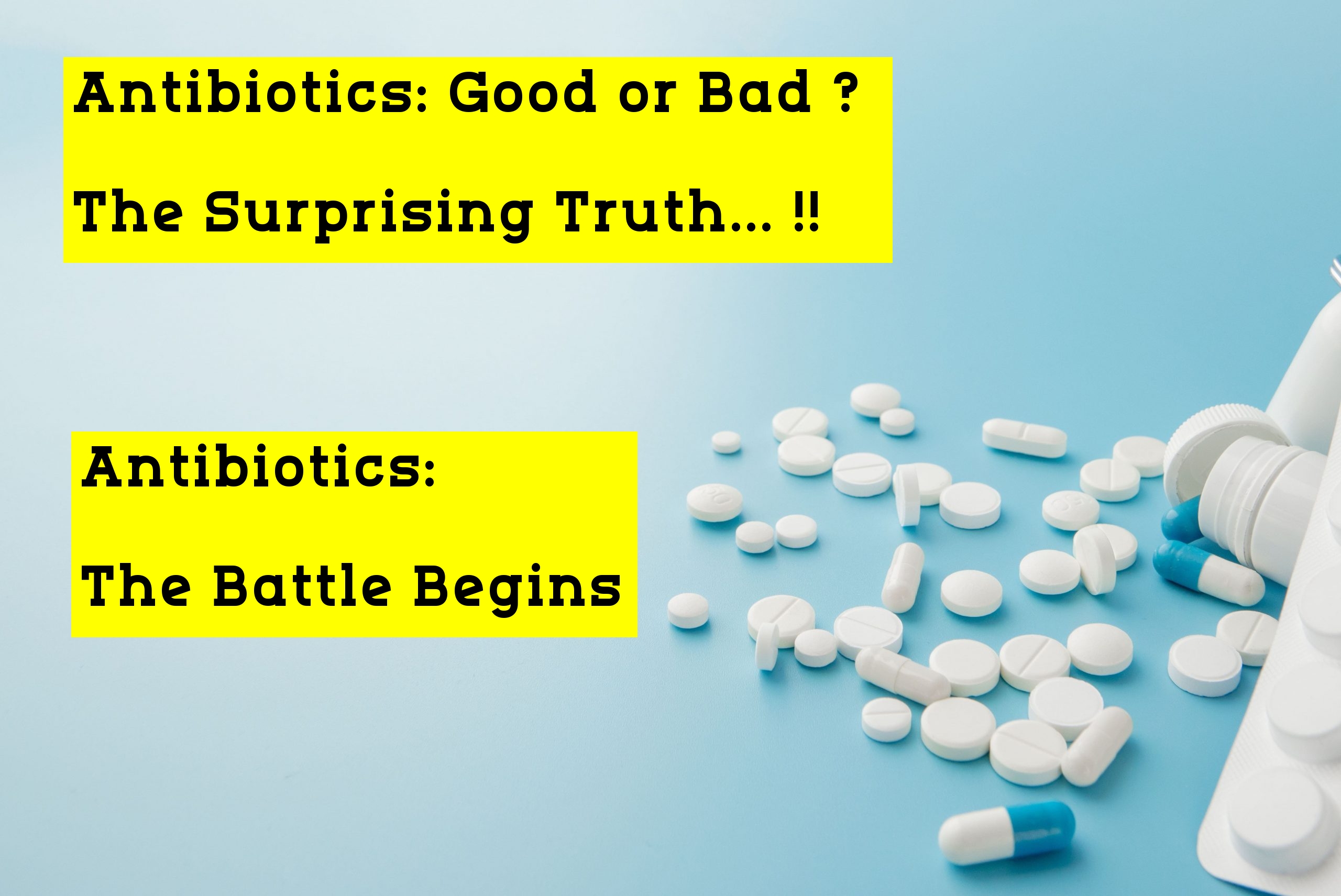While I would love for us to use antibiotics more conservatively, I think the balance can swing too far in the other direction with doctors not prescribing antibiotics when the patient would benefit. This is certainly already the case in the UK and the Netherlands (I have experienced both myself). Maybe the focus should be on better infection diagnostics, alternative therapies like phages (which can be incredibly specific and targeted to individual bacterial species), and monitoring. That way, patients would receive the right treatment for specific infections at the right time. We would reduce the use of broad-spectrum antibiotics while making sure people don’t just have to put up with infections for longer to avoid antibiotic use.
Two months ago, I had four courses of antibiotics due to a severe tooth infection and feared the worst for my gut microbiome as I felt I’d been poisoned. I’d not had antibiotics for more years than I can remember. I’m over 80, never take ultra-processed foods, and have been on an organic diet for 40 years to avoid taking antibiotics in meat. There is very useful information in this podcast about what to do next. I will increase time-restricted eating and take more fiber, kimchi, kefir, kombucha, etc., and I hope my good bugs win the battle!
Antibiotics: The Battle Begins
The reason for clindamycin is that no other general antibiotic has a better bone concentration. Reaching the toes with a systemic antibiotic carries far more challenges than reaching the gut. Let’s talk about why there is a risk of infection and what can result from it. The injury was a crush injury, so the bone was broken, exposing it to a greater risk of infection from any old bacterium that might be floating around in the blood and stopping in the fracture hematoma, whether it came from the skin, gut, or anywhere else. Blood flow in this case is further impeded by the fact that this is a crushing injury to soft tissues, including blood vessels, around, to, and from the bone. And no bones except toe bones are further from the heart, with a more delicate blood supply—neither closer to the ground’s supply of germs nor farther from our eyes, which direct conscious attention. If even one toe became infected, that might have resulted in amputation. Toes are not ornaments. They function in balance, stability, and strength for walking and running, and that applies more than double to the big toes. Lose them, and you will be shocked by how much you miss them. Now, add that history of difficulty with blood sugar control—prediabetes, if you will. When a diabetic gets a foot infection, it tends to be a mixture of multiple bacteria, hence the prophylactic use of a general antibiotic. When a diabetic undergoes ampicillin, even of a part of a single toe on only one foot, the risk of further infection and amputation up that lower extremity grows. This leads to what is known as serial amputations. Even if only one lower extremity is initially affected, protecting it so it might heal means putting extra stress on the other lower extremity, and when that starts to undergo serial amplifications, it is a steady creep toward an early death. As a residency-trained surgical podiatrist who then became a residency-trained orthopedic surgeon, this is why I would have put consideration of the gut microbiome below the risk of foot infection. Sure, I would have kept a keen eye out for C.diff colitis, but in a patient with a PCN history, I would have been afraid to risk anaphylaxis, because even if it is so rare for cases in which the history is that old, it is deadly enough that it would kill far faster than C. diff.
I required surgery for two dental absences back in 2021 and was also prescribed Clindamycin. This led to dysbiosis and two lengthy hospital stays after developing Clostridium difficile (C. Diff. Colitis). After leaving the hospital, I found I couldn’t digest certain types of food and, more importantly, had to significantly reduce portion size for a year or so due to irritability. If anyone is reading this and has similar problems with a sensitive colon and a compromised gut, supplementing with butyrate capsules proved extremely useful for me. I still supplement to keep my good bacteria fed. My quality of life has improved substantially, largely because of changes in diet and supplementation.
I’ve been on many different antibiotics. I have also had gastrointestinal issues since childhood that I thought were just “normal.” No doctor or dentist ever asked me about my gastrointestinal health before prescribing antibiotics. The most recent course was Cipro for a UTI. Prior to that, I had a dental issue that resulted in severe sinusitis, and I was on a few weeks of strong antibiotics. Doctors look at me and think I’m healthy, but I have had to fight tooth and nail for every bit of my health. I was prescribed tetracycline in high school, which really started the whole problem with candida for years. I’m in my 50s now and have had to make a comeback so many times. I have lived with chronic pain and inflammation for years. Three weeks ago, I decided to cut out all grains, sugar, etc. and basically go full keto/carnivore. My inflammation seems to be reduced, but this is so far from how I’m used to eating. I feel like I need to heal my gut once and for all after years of leaky gut and IBS. I already have much less bloating, but I still can’t wrap my head around whether or not this is actually a healthy diet or not. All the information out there is so conflicting.
I was one of those kids who took antibiotics every second week growing up (asthma caused by inappropriate immune response to commensal bacteria), and my diet was also pretty poor, or, let’s say, typical, for a 90s kid, meaning ultra-processed foods and low fiber. I have had issues with IBS as well as more allergies my whole adult life.
I am 65 years old and have avoided antibiotics for 40 years because I think they cause big problems that don’t get solved often. But I’ve had two surgeries this year and was forced to take antibiotics, especially for one of them because the wound got infected. I took doxycycline, and I don’t know how bad that one is. But my gut has not recovered. My problem is that I have severe celiac disease and other food sensitivities and allergies. I react violently to many fermented foods. My reaction to any alcoholic beverage, for example, is that every voluntary muscle in my body goes into a painful spasm. It’s like a neurotoxin. I can actually get temporarily paralyzed. I can’t even have a sip of communion wine without getting some reaction. But I also react poorly to kombucha and other fermented foods and drinks. Kefir isn’t an option because I can’t have dairy. I’m considering making some cabbage rejuvelac. I’ve responded well to that in the past. I’m taking a probiotic.


[…] acne at the age of 11. I am now 56. I spent most of my teens and early 20s taking one long-term antibiotic or another. Heaven knows what that did to my microbiome. I also spent most of those years scrubbing […]